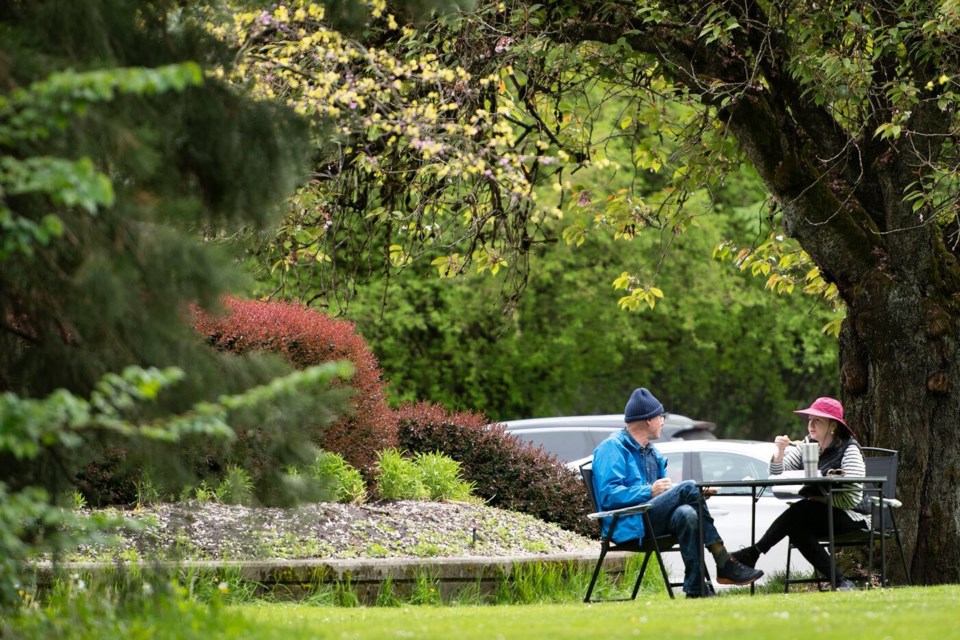New Westminster will seek support from other municipalities to close a “loophole” that allows cities to enforce alcohol consumption in parks – but not the use of drugs like crack or crystal meth.
Council has unanimously approved a resolution it would like considered by the Lower Mainland Local Government Association and the Union of B.C. Municipalities. It seeks support for a resolution requesting that the BC Government ask Health Canada to add “public park spaces designed for and used by children and youth” to the list of exceptions to the Controlled Drug and Substances exceptions.
Acting deputy fire Chief Brad Davie prepared a report for council on the issue, on behalf of the New Westminster Drug Decriminalization Working Group. The issue relates to the exemption that Health Canada has granted to the BC government regarding the decriminalization of the possession of certain drugs, one of its efforts to tackle the toxic drug poisoning crisis.
“Under the exemption, adults in possession of 2.5 grams or less of opioids, cocaine derivatives and amphetamine derivatives will not be charged, fined or have their drugs seized by police,” said the report. “Instead they will be offered information about health and social supports, including local treatment and recovery services.”
The report noted that there are a series of exceptions, including on kindergarten to Grade 12 school premises, on the premises of licensed child-care facilities, in airports, and in a motor vehicle or watercraft operated by a minor.
The working group, however, noted a “gap” in the list of exceptions – the ability to use illicit drugs in public park spaces designed for and used by children and youth.
Dean Gibson, the city’s director of parks and recreation, said council adopted a bylaw to permit the consumption of liquor in designated locations in certain parks. He said those areas are generally designed to be away from spots where children play.
“It is clearly defined the specific parks where it applies to and the areas in parks where alcohol may be consumed,” he said. “And there are provisions associated with that bylaw for penalties for infractions associated with that particular bylaw.”
Coun. Daniel Fontaine said he hopes the city’s action will kick start a process that gets the federal government to close the loophole.
“I think that's an important clarification for the public to know that if you're consuming a vodka cooler, you could fall under some kind of a penalty in certain parts of parks,” he said. “But if you're consuming crystal meth, you're not. So I think that's important for clarity, and I think that this motion speaks to that.”
Davie confirmed there is no tool cities can currently use in public parks to address the public use of the drugs that have been decriminalized for personal possession.
Fontaine said he fully supports the city’s resolution, but still has concerns about drug use in other parts of the city that are in close proximity to places where children are playing.
Coun. Paul Minhas, who has been a business owner on Columbia Street for nearly two decades, said he sees a lot of children walking with their parents through Westminster Pier Park and other parts of the downtown, where there's open use of hard drugs.
“It is a serious concern that I have, and it's very much out in the open,” he said. “I have some serious concerns in regards to this behavior.”





